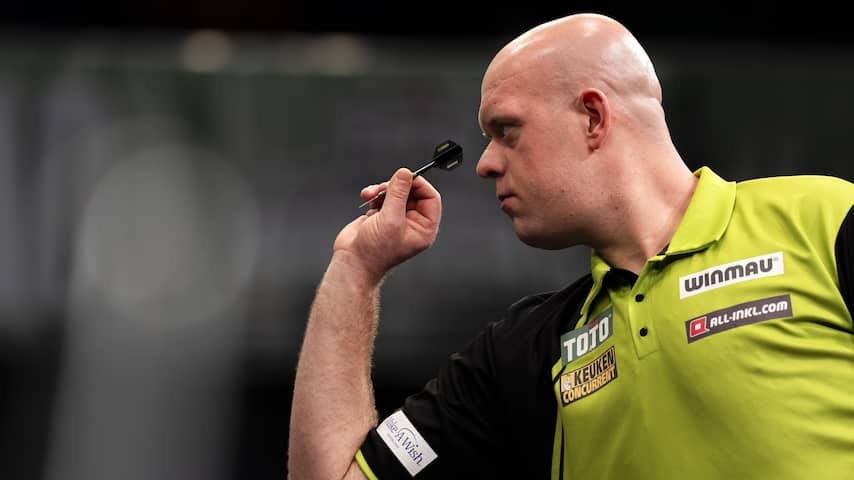
If you follow the World Matchplay darts tournament via an online livestream, you may have noticed something strange about the Dutch commentary. The voices don’t sound very human. And that’s right: they come from the computer, made with artificial intelligence.
PDC TV, as the British Darts Federation’s online streaming service is called, is experimenting with live translations of commentary during matches. You’ll be happy to take out a subscription: “full coverage of the World Matchplay tournament, with commentary in the local language”.
It’s not human commentary, but an automatic translation of the British coverage. According to PDC TV, the commentator’s voice is translated with AI. “The voices of the commentators are mimicked,” says Jamie Banks, head of broadcasting at PDC TV. “As a result, they have a human tone instead of traditional computer voices.”
Yet as a viewer you can clearly hear that they are not human voices, as you also hear with AI assistants such as Apple’s Siri or Google Assistant. It mainly lacks emotion, according to media scientist Esther Hammelburg from the Hogeschool van Amsterdam. “We don’t always realize it, but sound does a lot for the experience of watching TV,” she says. “Especially with live broadcasts of sporting events.”
That human emotion ensures that, for example, ESPN does not use AI commentary. “Sport is emotion and match commentary is therefore still human work in our eyes,” says a spokesperson. “In addition, events in a match often require specific interpretation and explanation. Is this decision by the referee correct? What do the rules say about this? What is happening there in the stands?”
Easily expand to new markets
At PDC TV, human commentators are still at the base. The company does not see human commentary disappearing quickly. “In Italy, commentators have become well-known figures, so it makes more sense to use them,” says Banks. “But this technology does allow us to offer commentary in as many countries as possible.”
ESPN does see a solution in the way PDC TV uses its AI commentary. According to the spokesperson, it can partly be a solution to provide commentary on more matches from multiple countries. “For now it is not an issue for us, but we are following developments closely.”
Hammelburg is not yet convinced. “Even if AI voices can mimic human emotion, you still have to take into account the different cultures. In some countries commentators shout about everything that happens, while other countries are used to calmer commentary. And when we look at the Dutch national team, we also want to hear that from a Dutch perspective.”
‘Fake voice gives a different feeling’
Sebastian Plasschaert also believes that complete credibility is not currently achievable with AI commentary. He is the owner of XS2Content, a Dutch company that works a lot with AI voices. Even if it’s done very well, the trained ear can still recognize mistakes.
Dutch media are also experimenting with AI voices outside of sports broadcasts. For example, regional broadcasters such as RTV Oost and Omroep Brabant are testing with AI newsreaders.
According to Plasschaert, companies should think carefully about when and what they use AI for. “You might not want to use news reading with AI during the day programming without first testing it properly,” he says. “You could experiment with it at night. Whether something is real or fake gives the viewer a different feeling. I think you should always be transparent about it.”